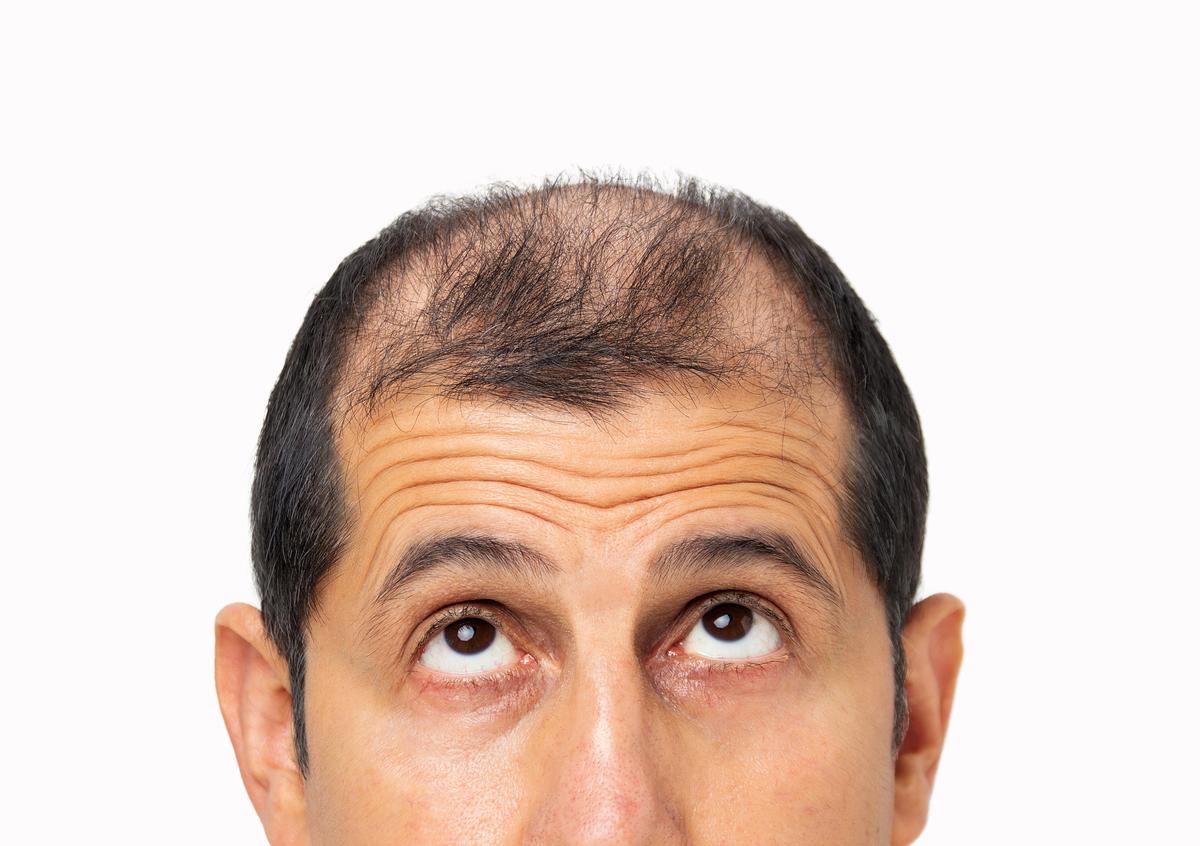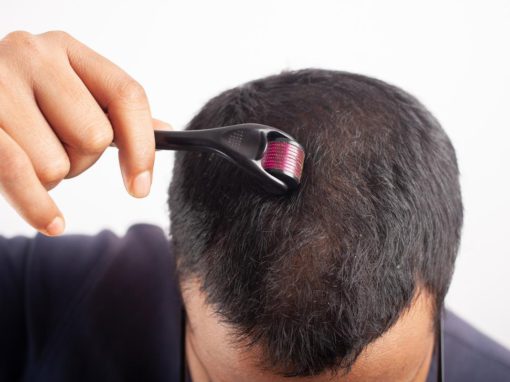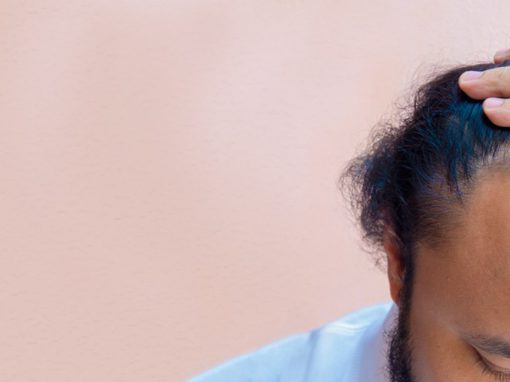Hair Loss vs. Hair Thinning
Hair thinning and hair loss may seem the same, but they are not. Both conditions pertain to losing hair. However, the loss of hair and the reason for both differ greatly. Hair loss is a natural process of shedding hair as part of growth. A lot of natural and external factors also influence hair loss.
Hair thinning, on the other hand, is a condition that makes one lose all their hair in patches. The density of the hair growth reduces, leading to thinning and weak hair. Therefore, hair breaks off easily and sheds as well.
How does hair loss and hair thinning differ?
A lot of people have concerns when they start to lose hair. However, both the conditions of hair loss and thinning hair are normal. Everyone experiences hair loss at some point over their entire lifetime. People tend to lose most of their hair. Their hair finds a replacement through the new growth problem that arises when the growth rate is slower than the rate of shedding or losing the hair.
Hair fall can become a part of anybody’s life. People lose their hair every day. On average, a human loses around at least 100 hair strands daily. The rate of hair shedding can increase due to environmental and physical stress to name a few.
Hair thinning, on the other hand, is a part of growing old. The hair-thinning condition makes the hair shaft grow thinner. Hair thinning is noticeable as you start losing the density of your hair.
What is hair loss?
A sudden influx of external or internal factors induces hair loss in an individual. Another name for hair loss is anagen effluvium. In this case, the hair completely stops growing. The sudden shock of the factor makes one lose their hair.
There are various hair loss causes. One of the causes is genetic and external factors like stress can also induce hair loss. In most cases, the anagen hairs shift to telogen hairs.
Hair loss symptoms
Hair loss has some common tell-tale signs. One should look for these signs for early detection of the cause. The common signs in most people include:
• Widening part
One of the earliest signs of hair loss that one notices is a part of the hair getting to widen. It usually appears at the crown of one’s head. The part at the front usually appears normal. However, the part at the back starts to become wider too.
• Thinning hair at the temples
When it comes to baldness in men, it has a pattern too. The hairline near the temples is where the hair loss usually begins. The hair loss starts at the temple and then extends to the back gradually. It might seem that the thinning is just there; however, it will spread eventually.
• Hair thinning at the crown
Another place where the hair starts to thin out is the crown. The androgenetic alopecia eventually causes hair loss to spread outward in a circular manner and this leads to the formation of a bald spot.
Causes for hair loss
There are various causes of hair loss such as:
• Hereditary
A lot of people suffer from hair loss due to their genetic makeup. It is a type of alopecia. However, this hair loss is not harmful, and those who are experiencing it undoubtedly feel devastated. Moreover, such a condition is most common in men.
• Hormonal issues
Hair loss due to hormonal changes are a common occurrence in women. Especially after childbirth or during pregnancy, the hormonal imbalance can cause one to lose their hair. The stress of pregnancy can cause hair follicles to fall as they become loose.
• Stress
One of the biggest factors of hair-thinning men is stress. Stress leads to nutrient deficiency in hair, and it starts to fall. Resorting to yoga and meditation can remedy this issue. Furthermore, prolonged stress can cause alopecia, wherein the immune system attacks the person’s hair follicles and leads to hair loss.
• Excessive use of hair products
Another common cause of hair loss is the harsh chemicals used in styling; hair care products are bad for health. Styling products like curling or perming can permanently damage the hair.
• Vitamin deficiency
One of the component elements when it comes to hair is protein. The peptides also make up a part of the hair. A deficiency of these can cause significant hair loss. Therefore, one must eat a vitamin-rich diet.
Hair loss treatment
The best and most permanent hair loss solution is getting a hair loss treatment. The treatment includes hair transplant, which is cost-efficient; making it easy on the pocket. Moreover, it helps boost the self-esteem of the individual. After the treatment, slowly, the hair will start to grow back.
A hair transplant is easy to maintain. Not only that, but the process also ensures that one is free of all hair issues. You can easily apply oil and shampoo to your hair after the treatment. Hair loss treatment has become one of the most popular solutions for hair loss problems or alopecia.
What is hair thinning?
So, what exactly is the difference between hair loss and hair thinning? Hair thinning is a condition that makes the hair shaft grow thinner in diameter. The diameter keeps on getting smaller with each hair fall and regrowth cycle. The diameter of the shaft reduces and becomes non-existent after one point.
Hair thinning is a long process. Generally, hair thinning occurs in older individuals. It is noticeable when you start to lose your hair. Your hair starts to lose density and that is when you start noticing the change in your hair.
Hair thinning symptoms
What is hair thinning? Hair thinning causes the hair to become loose and brittle. The hair is more prone to breakage. The hair starts to thin around the crown of the head. Over time the thinning spreads. Also, many people face their hair thinning out in patches.
Hair thinning causes
Hair thinning has several factors that trigger this issue. Out of hair loss vs. hair thinning, the hair thinning causes are similar in some ways to the symptoms of hair loss. However, there is a slight difference which includes
• Hereditary
The most common condition of hair loss is hereditary. Androgenic alopecia, or male and female pattern baldness, occurs gradually. Hair loss happens in patterns. For instance, it causes receding hairlines in males.
• Hormonal changes
Hormonal changes occur due to pregnancy or childbirth and can affect the hair. In some cases, it accelerates hair loss. The hormonal imbalance causes the hairline to recede.
• Medications
Hair loss is a very uncommon side effect that can be brought on by a number of medications: weight loss drugs, blood thinners, antidepressants, cholesterol-lowering medications, and hormone-related medications such as thyroid medications, hormone replacement therapy, or steroids.
Hair thinning treatment
Hair thinning is a treatable condition. Hair thinning in males and females is curable through various treatments. Treatments like hair transplants can encourage new hair growth and bring hair back to the scalp. It stops the person from going bald or pattern baldness. Hair thinning starts at the top front part of the head.
andSons recommended product for hair loss & hair thinning
andSons provides you with a hair loss kit that contains products that are both applicable and taken orally. There is an oral medication that is the most effective for male pattern baldness. After the clinical trials, you can use the product. You must use the product daily for at least 3 to 6 months, and only then will you notice some changes.
Conclusion
Although hair loss and hair thinning can sometimes become confusing. It is easy to find a solution when you narrow down the symptoms and the cause. The correct treatment will remedy the situation faster than expected. It is also important to get effective treatment that will do away with the problem for good.
FAQs about hair loss and hair thinning
1. Why is my hair thinning suddenly?
Sudden thinning of hair can happen due to a lot of reasons. It could be extreme stress, pregnancy, or certain medications you take. You can restore your hair and regain volume with the correct treatment.
2. Can thinning hair become thick again?
Treatments can alter and change the diameter of the individual hair strands. The hair strands can regain their thick diameter and make your hair appear fuller and thicker again.
3. What should I do if I have thin hair?
You can try getting a diagnosis for the cause of your thin hair. Next, you can avail yourself of treatment accordingly to restore and boost the growth of your hair.
4. Will hair regrow after hair loss?
Yes, hair always regrows after hair loss. It is the rate of regrowth that differs. With treatment, you can accelerate the rate of hair growth.
This article is for informational purposes only and does not constitute medical advice. The information contained herein is not a substitute for and should never be relied upon for professional medical advice. Book a consultation with andSons Singapore’s medical team to learn more about hair loss treatment here.


